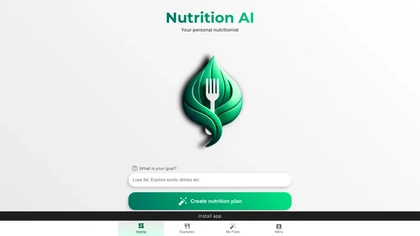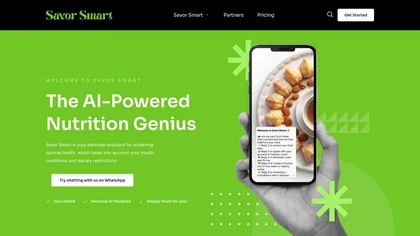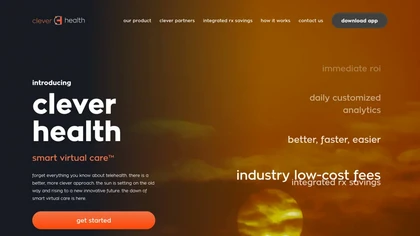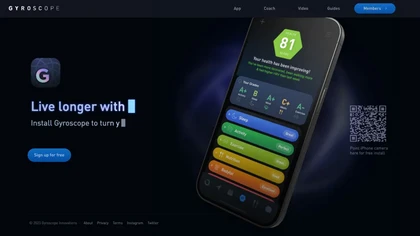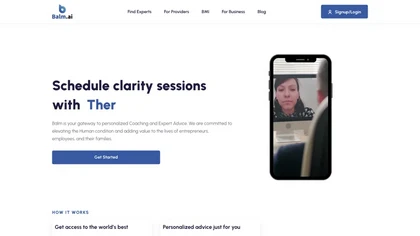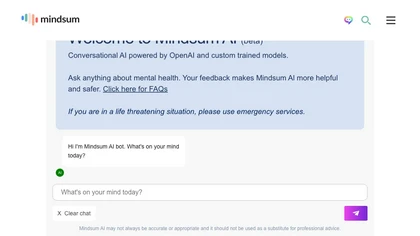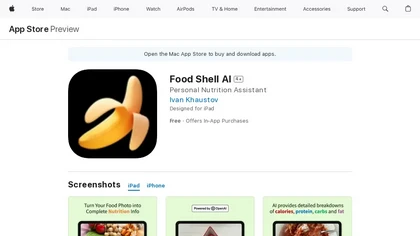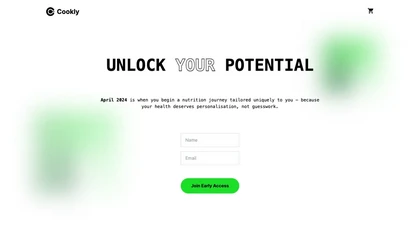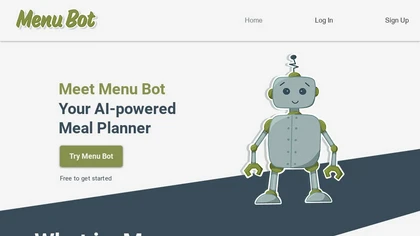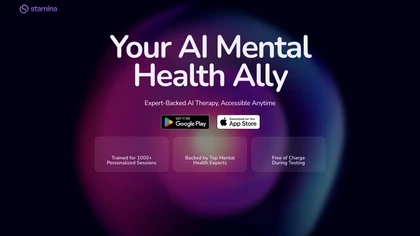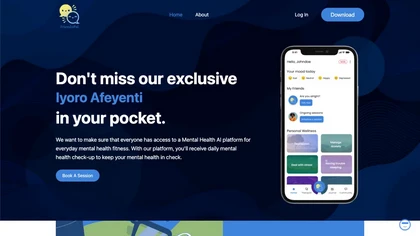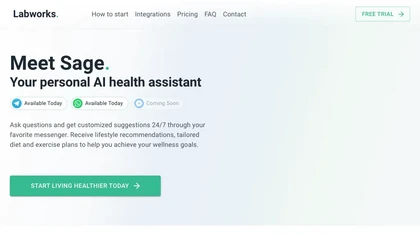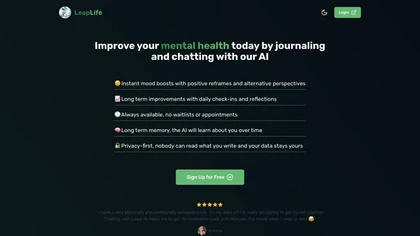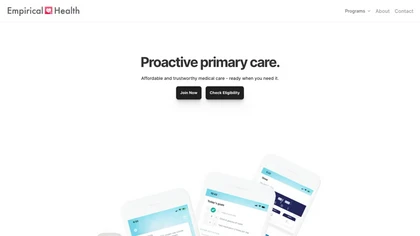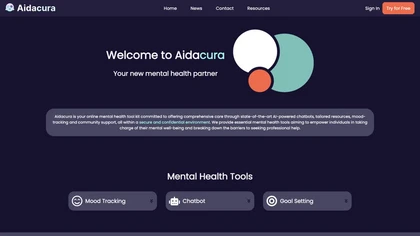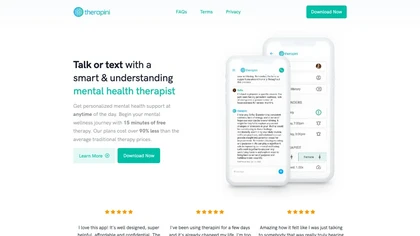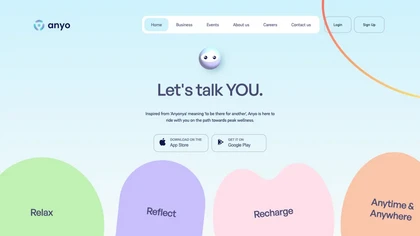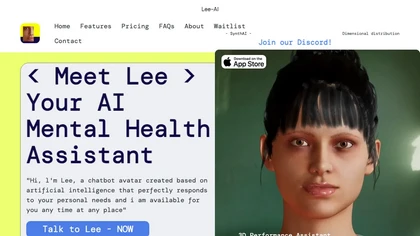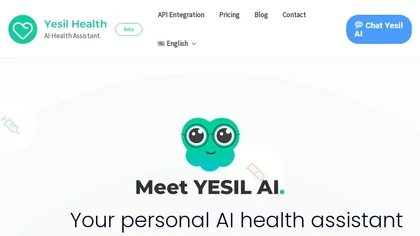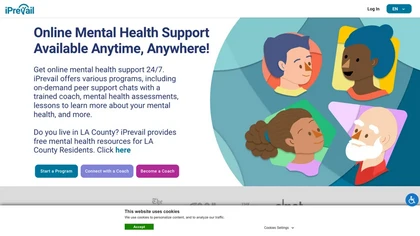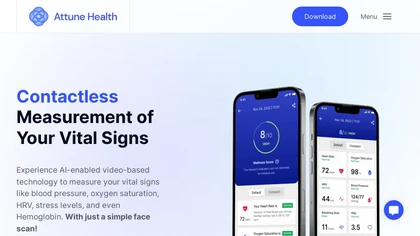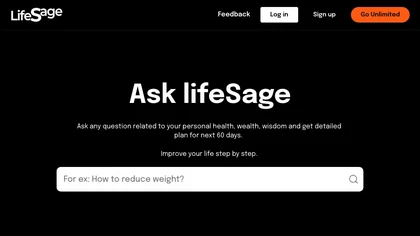AI use cases for Health
Generative AI can be applied in various applications for health. Here are some examples to explore below for inspiration with AI tools to get you started with using AI in health.
🛠️ 70 AI tools for Health
Explore a dynamic list of some of the most popular tools to get you started with various AI use cases and applications for Health to streamline your workflows and productivity today.
Well Me Right features
- AI matching and Health Coach capabilities
- Personalized coaching
- Dietary tracking, nutritional guidance
- Guided meditation sessions
- Adaptive health partner
NutritionAI features
- Customized nutrition plans creation
- Tailored meal plans examples
- Focus on privacy and user control
- Installation at home
- Platform login feature for support and queries
AIvocado features
- Food image recognition
- Nutrition analysis
- Personalized tracking
- AI diet assistant
- Long-term diet tracking
AI Meal Planner features
- Generates personalized meal and workout plans
- Includes fitness chatbot support
- Provides recipes
- Tailored to user's goals and needs
- Pricing options available
Nutrition Assistant features
- dietary advice support
- intolerance support
- recipe suggestions
- nutritional goal assistance
- personalized nutrition guidance
MyFit AI features
- Program generation
- Meal plan generation
- Saving programs
- Input personal data
Vibly features
- AI matching algorithm
- Personalized coach recommendations
- Tailored coaching experience
- Evidence-based techniques
- Convenient online coaching sessions
🔥
Create your account, save tools & get personal recommendations
Receive a weekly digest of our handpicked top tools.
Unsubscribe anytime
Gala Coach features
- Personalized profile creation
- Daily support and motivation
- Smart tracking features
- Tailored guidance
- Interactive nutrition lessons
Mymealplan features
- Generates personalized meal plans
- Curates a list of the best recipes from the web
- Easy-to-use app
- Caters to various dietary preferences
- Provides grocery list for easy shopping
Savor Smart features
- Personalized meal plans
- Consideration of health conditions and dietary restrictions
- Chatbot integration on WhatsApp
- Blood sugar control and weight loss support
- Contextual reminders throughout the day
BodyGuru features
- Personalized wellness routines generation
- Tailored recommendations
- Free platform
- Upcoming features integration
- Developed by JBBAE
ZeoFit features
- telegram access
- personalized workout plans
- nutrition plans
cleverhealth.ai features
- AI technology utilization
- Quick consultations with average visit time
- AI decision support for accurate diagnoses
- AI-powered chatbot for mental health support
- Cost savings on medications
Shapemate features
- Workout tracking
- Calorie tracking
- Personalized recipe generation
- Personalized workout plan generation
- Nutritional information chat interface
MealMate
5MealMate features
- Plan meals
- Tailor dietary preferences
- Consider budget
- Adjust for time constraints
VPT.FIT features
- Custom workout solutions
- Tailored fitness plans
- Personalized workouts
- Expert coaches
- Cutting-edge technology
BurnBacon features
- Workout plans
- Customized meal suggestions
- Motivational support
- Fitness guidance
- Data-driven solutions
Gyroscope features
- Personalized guidance
- Video guides
- Tracking tools
- Insights through reports
- Custom workouts
FoodZilla.io features
- Recipe builder
- Meal planning system
- Nutrition reports
- Mobile app
- Secure messaging
Getactyv features
- Ai-based coach
- Personalized programs
- Motion sensor-enabled workouts
- Flexibility
- Strength
- Weight loss
Balm.ai features
- Personalized coaching
- Access to top experts
- 1-on-1 virtual sessions
- Tailored advice
- Convenient expert connection
Alter features
- Genetic trait analysis
- Personalized fitness plans
- Stress monitoring
- Nutrition guidance based on DNA
- Access to top-tier coaches and wellness advisor
BodyCompAI features
- Personalized nutrition and workout plans
- Analysis of unique body type from a photo
- Crafting workout plans for strength and fitness enhancement
- Tailored nutrition advice with custom meal plans
- Advanced workout analysis for personalized plans
ONVY features
- Track daily activities
- Receive personalized guidance on sleep, fitness, and stress management
- Offers a monthly health report
- Connects to 300+ fitness trackers
- Ensures data privacy through gdpr compliance
Clearmind features
- To-Do lists
- Mood cards
- Meditation scripts
- Chat
Mindsum features
- Answer mental health-related queries
- Offer custom train models
Food Shell AI features
- nutrition information analysis based meal photos
- calories tracking
- personalized recommendations
- photo food logging
- OpenAI GPT-vision technology
Cookly features
- Personalized nutrition guidance
- Real-time macro tracking
- Food recommendations based on user preferences and goals
- Dynamic macro tracking
- Advanced AI-powered algorithms
FitMate AI features
- Personalized workout routines
- Artificial intelligence for exercise plans
- User-friendly interface
- Vast database of exercises
- Private and secure fitness experience
Menubot features
CalmMind features
- Wellness assessment
- Calmmind chat
- Curated wellness programs
- Therabot
- Community support
Workout Tools features
- Personalized workout sessions
- Tailored workout plans
- Adapts to available equipment
- Extensive database of exercises
- Customized training experience
Mealpractice features
- Recipe generation
- Ingredient selection
- Nutrition style customization
- Protein selection
- Cuisine style selection
Dr. FeelGood features
- Personal AI motivational coach
- Human-like understanding
- Powerful motivational capabilities
- Available 24/7
- Coaching sessions anytime needed
Stamina AI features
- Expert-backed AI therapy tool
- Over 1000 personalized sessions
- Cognitive behavioral therapy techniques
- 24/7 availability
- Personalized support from a team of 200+ mental health professionals
Eat Smart features
- Personalized diet plans
- Customization based on weight, height, age, and weight loss goals
- Consideration of country of residence for local cuisines
- Biologically relevant dietary recommendations
- Free AI tool
FriendnPal features
- virtual one-on-one chats with therapists
- supports various African languages
- booking therapy sessions online
- ASMR sounds for relaxation and stress relief
- digital journal for mood tracking
A.I Meal Planner features
- Generate personalized monthly meal plans
- Access pre-designed low fodmap meal plans including free 3-day and 7-day plan
- Consider specific dietary needs to create customized meal plans
- Provide information on gut health and assist users in leading a healthy lifestyle
- Offer a variety of low fodmap recipes created by an ai chef
MealForMe features
- Meal suggestion based on preferences and dietary needs
- Personalized meal recommendations
- Tracking of daily health metrics for suggesting meal options
- Simple registration process with setup of likes and dislikes
- Collaboration with restaurants for customer engagement
Sage features
- Personalized health advice
- Meal planning
- Customized exercise recommendations
- Tracking daily activities
- Monitoring progress
Planfit - Personal Trainer features
- Personalized workout plans based on individual goals and fitness level
- Optimization of sets, reps, and weights for each exercise
- Detailed exercise guides with clear videos for proper form and muscle targeting
- AI trainer named 'Max' for tailored workouts, motivation, and support
- Progress tracking, muscle recovery monitoring, calorie burn tracking, and workout balance maintenance
LeapLife features
- AI chat function
- Personalized chatting AI
- Daily journaling
- AI therapists chat
- End-to-end encryption
Programs by TrAIn features
- Tailored training programs
- Powered by GPT-4
- Science-based training approach
- Personalized workout programs
- Tailored to unique needs
Empirical Health features
- Proactive primary care
- Integration of consumer wearables for health monitoring
- Consultation with doctors via mobile app
- Personalized care plans
- Compatibility with major insurance providers
Aidacura features
- AI-powered chatbots
- Tailored resources
- Mood-tracking
- Community support
- Natural language processing
FitComrade features
- Track workouts
- Track water intake
- Set fitness plans
- Access to 1300+ exercises
- AI-powered guidance
therapini features
- Personalized support and guidance
- Navigation of common therapy FAQs
- Confidential mental wellness assistance
- Communication via talk or text
- Practical and encouraging tailored advice
TasteBuddy features
- Personalized meal plan generation based on individual tastes and goals
- Dietary preference input for designing tailored meal plans
- One-click grocery shopping integration with Amazon Fresh
- Calorie tracking with magic links setup for tracking macros
- Dynamic plan adjustments for changing dietary needs and preferences
MealPlanner features
- Personalized meal planning
- Tailored meal plans based on dietary restrictions
- Customized meal plans based on personal taste and preference
- In-app shopping list feature
- Step-by-step cooking instructions
Anyo features
- Personalized self-care activities
- Resilience building through Carebox
- Real-time connections with listeners
- Seamless booking of therapist appointments
- High-quality content in yoga, psychology, meditation
SuratFit features
- Personalized workout plans
- Instructional videos and 3-D animations
- Customizable workouts
- Membership plans
- Loyalty reward management system
Gymgenie features
- Generate workout plans
- Create gym exercise routines
- Easy workout scheduling
- Stay healthy and fit
- Never miss a workout
LeeAI features
- 3d performance assistant
- Robotic life coach
- Utilizes chatgpt-4
- Data privacy
Yesil Health features
- Symptom analysis
- Lab result analysis
- Customized lifestyle advice
- Personalized diet plan
- Exercise plan
MikeAI features
- Meal plans
- Workout plans
- Fitness assessments
- Chatbot
- Purchase one time plan
- Purchase premium subscription
Mealmind features
- Generate personalized meal plans
- Interactive shopping lists
- Tailored to individual dietary requirements
- Food preferences
- Fitness goals
- Simplify grocery shopping
- Provide step-by-step instructions for cooking
- Variety of diets
SmartGym features
- Personalized workout suggestions based on progress
- Artificial intelligence smart trainer for customized workouts
- Real-time recommendations and adjustments
- Tracking capabilities for various workout metrics
- 690 exercises with animation instructions and customization options
Getinshape.ai features
- Personalized workout plans
- Tailor-made workout routine creation
- Fitness goal customization
- Adaptation to different setups (home, gym, office)
- Effective and convenient fitness solutions
iprevail.com features
- Personalized wellness programs
- User-friendly interface
- Self-help modules
- Therapy sessions
- AI algorithms for progress tracking
Attune health features
- Vital sign measurement
- Contactless experience
- Real-time measurements
- Wellness tracking
- Corporate wellness
MindwellAI features
- Self-care
- Coping tools
- Journal writing
- Coaching
- Anxiety management program
FITT features
- Personalized workout plans based on experience, goals, and preferences
- Adaptive algorithm for custom exercise plans
- Progressive training with increasing exercise intensity
- AI-powered fitness app
Fitbod features
- AI-powered workout planner
- Creates and optimizes personalized workout routines
- Library of 1,000+ exercises with instructions and videos
- Tracks progress, strength gains, recovery status, and personalized training metrics
- Monitored recovery plan to optimize training around fatigued muscles
Prospre features
- Meal plan generation
- Macro tracking
- Grocery list generation
- Customizable meal planning
- Ai coach
Coachify.AI features
- Personalized workout plans
- Animated workout videos
- Progress tracking
- Strength reports
- Personalized training experiences
Faitness features
- Personalized fitness plans
- AI-powered workout plan generator
- Utilizes GPT models for routine creation
- Adapts to equipment availability and fitness levels
- Focus on safety and effectiveness
RetireMint features
- Virtual retirement planning assistant
- Assessment of retirement readiness
- Personalized feedback and advice
- Professional assessments in various retirement-related areas
- Comprehensive retirement roadmap building tools and resources
Vital features
- Personalized audio-guided sessions
- Selection of eight specific meditation techniques
- Six different AI meditation coaches
- Automated email guidance
- Community building through practice comparisons and point system
Lifesage features
- Health
- Wealth
- Wisdom
- Personal development
- Self-improvement

